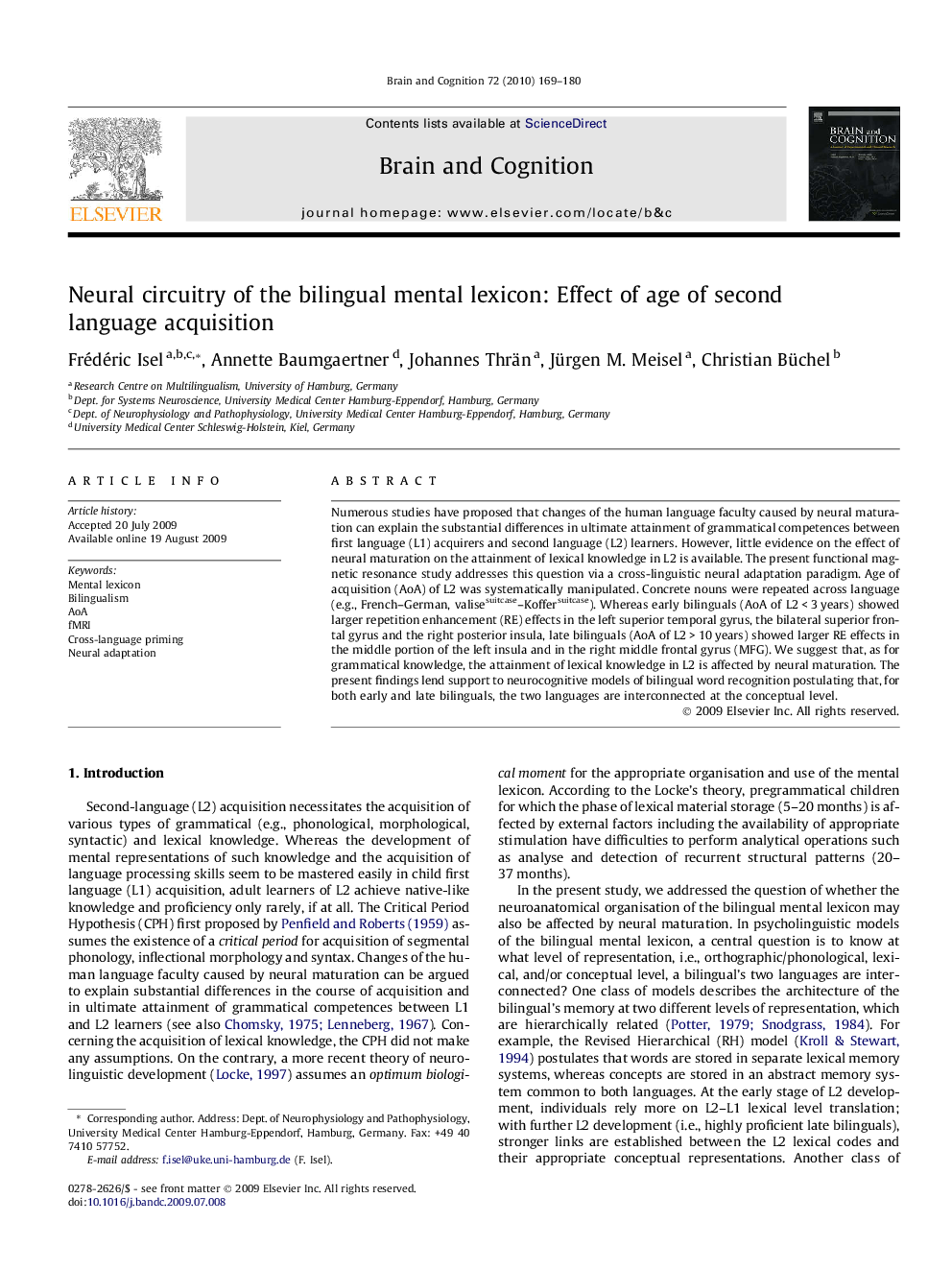| Article ID | Journal | Published Year | Pages | File Type |
|---|---|---|---|---|
| 924774 | Brain and Cognition | 2010 | 12 Pages |
Numerous studies have proposed that changes of the human language faculty caused by neural maturation can explain the substantial differences in ultimate attainment of grammatical competences between first language (L1) acquirers and second language (L2) learners. However, little evidence on the effect of neural maturation on the attainment of lexical knowledge in L2 is available. The present functional magnetic resonance study addresses this question via a cross-linguistic neural adaptation paradigm. Age of acquisition (AoA) of L2 was systematically manipulated. Concrete nouns were repeated across language (e.g., French–German, valisesuitcase–Koffersuitcase). Whereas early bilinguals (AoA of L2 < 3 years) showed larger repetition enhancement (RE) effects in the left superior temporal gyrus, the bilateral superior frontal gyrus and the right posterior insula, late bilinguals (AoA of L2 > 10 years) showed larger RE effects in the middle portion of the left insula and in the right middle frontal gyrus (MFG). We suggest that, as for grammatical knowledge, the attainment of lexical knowledge in L2 is affected by neural maturation. The present findings lend support to neurocognitive models of bilingual word recognition postulating that, for both early and late bilinguals, the two languages are interconnected at the conceptual level.
